Tintswalo Lapalala – Waterberg, Limpopo
You might be forgiven for spending most of the time in your tented suite rather than exploring the surrounding 45,000 hectares of Lapalala Wilderness Reserve. Each of the seven suites is so visually inviting you’ll want to sit a while and absorb the colours and textures curated by Tintswalo’s co-founder Gaye Corbett.
I was in this predicament while Gaye showed us around. As our group toured the property, I lingered and got left behind, mesmerised by the arresting art displayed on the walls of each tent. South African photographer David Ballam’s portraits hold centre court in the suites, each themed around an African culture.
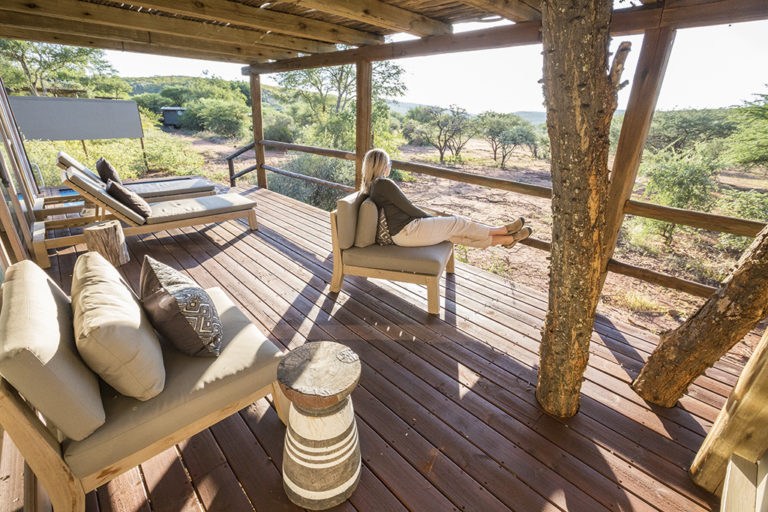
Wildlife comes to drink at the waterhole in front of the Xhosa Family Suite’s spacious deck. Image: Michelle Hardie.
The richness of bush colours – red ochre to orange browns – accent Himba and Turkana suites, while Tuareg and Venda come alive with fresh splashes of cerulean blue. I stayed in Maasai, and at night two of Ballam’s handsome warriors watched over me from the walls as I slept. Most suites have views of the waterhole. Mine didn’t, but Maasai is on the very edge of the camp, with a forest alongside it. Early in the mornings I sat drinking my freshly brewed coffee with the sunlight streaming through the trees onto the deck.
The staff were constantly providing interesting and varied locations to feed and refresh us. For our bush breakfast, about a 15-minute drive from camp, a long table was laid under a huge acacia tree and the cooking done on-site. Lunch was beside the Palala River, with gazebos erected, pillows scattered and carpets laid. Shaded from the searing heat, I lay back satisfied, my tummy full of crusty pie baked that morning. Later, we had sundowners overlooking Rapula Rock and the rolling mountains and plains of the Waterberg.
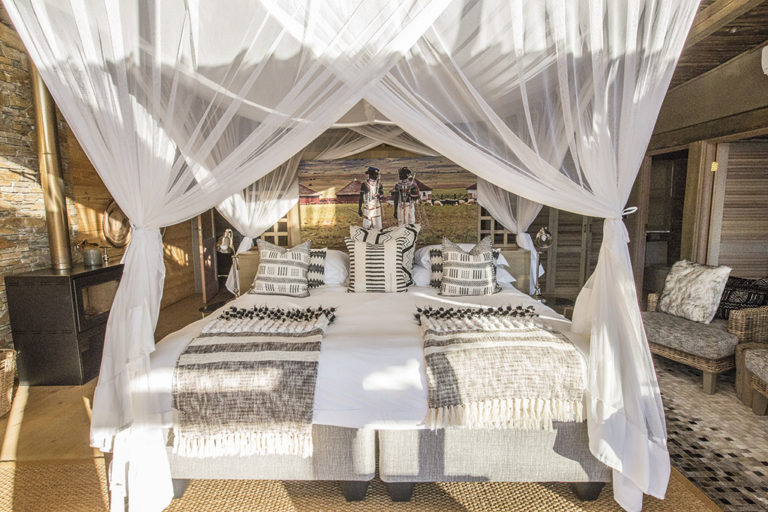
Xhosa’s palette of light colours and soft fabrics is especially calming. Each suite has its own private plunge pool. Image: Michelle Hardie.
Eating and hanging out at the lodge was equally satisfying. The main deck, shaded by a large weeping boer bean, extends into the boma, and the layered rooves lined with riete are gentle on the eye. The two lounges each with comfy sofas were great for post-meal lolling. There are also two kilometres of walkways if you want to stretch your legs in camp.
Tintswalo Lapalala opened at the end of 2018 but work in the area began as far back as 1981, with conservationists Clive Walker and Dale Parker’s vision of a sustainable reserve. There isn’t a powerline in sight, and the on-going research and breeding programmes of roan antelope and disease-free buffalo allow full-time employment for an ecologist and vet.
Lapalala is not the place for first-time safari-goers keen to tick off the Big Five. Although they’re all in the reserve, there’s no guarantee you’ll see them. Rather, it’s for those who want a bush experience with varied activities, including game drives. History lovers can enjoy a hike up to an Iron Age site and a walk into a valley to see rock paintings dating from the Stone Age, and there’s also bass and fly fishing in the Palala River – one of the most pristine in South Africa with 27 kilometres of it weaving through the reserve.
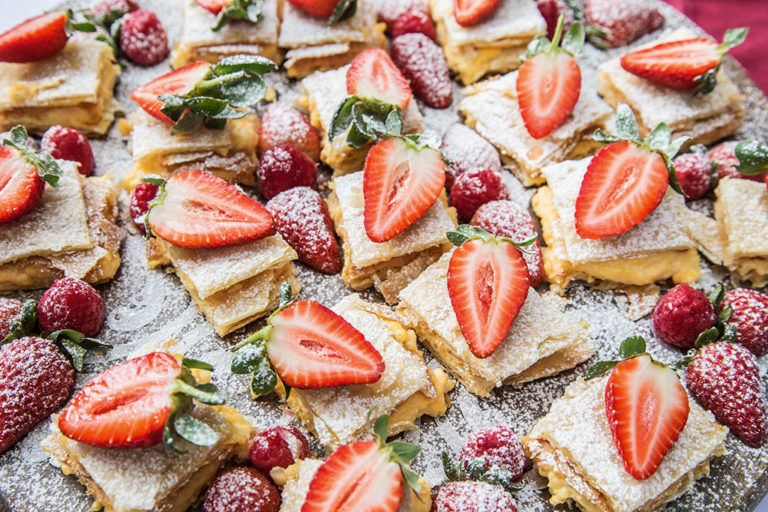
Afternoon tea treats are special and plentiful at Lapalala. Image: Michelle Hardie.
Best Feature
The hospitality (you truly are spoilt, from sun up to sun down), and the exclusivity – there are only two lodges in the whole reserve, so you virtually have it to yourself. Tintswalo sleeps just 16 adults and four children and is only 300 kilometres from Joburg.
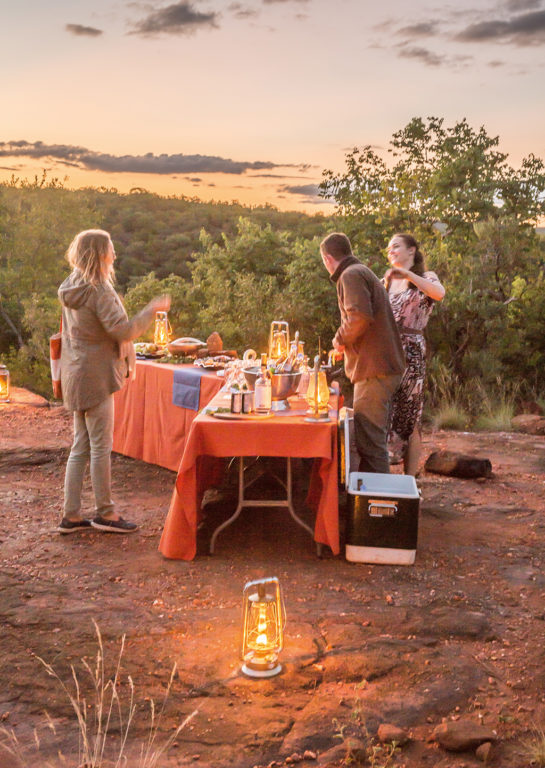
Sundowners and snacks are served in generous quantities deep in the bush at The View, south-west of camp. Image: Michelle Hardie.
Cost: Getaway reader special launch offer: from R3,900 per person sharing, luxury accommodation, all meals, house drinks and twice-daily safari excursions or wilderness experiences. Special rates are available for children. Valid until 15 December 2019.
Contact: 0113008888, tintswalo.com
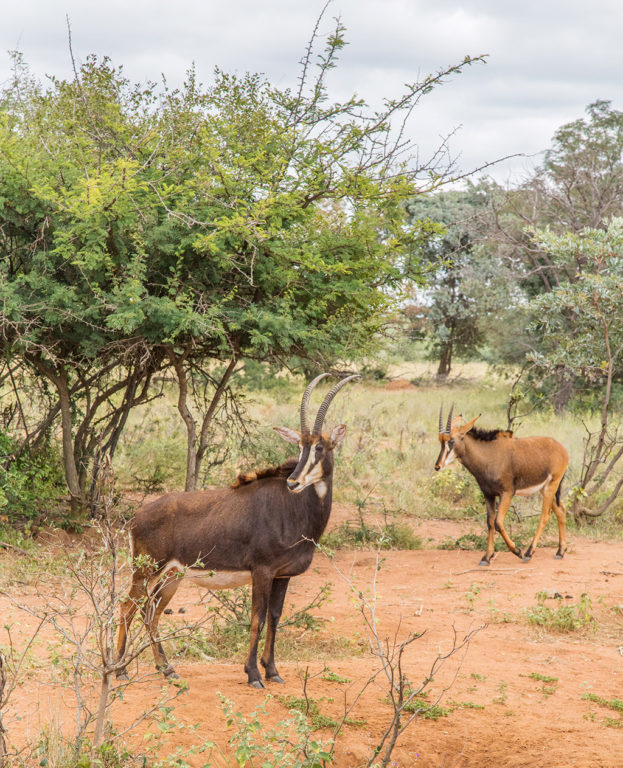
Lapalala Wilderness Reserve’s breeding programme includes sable. There are about five bulls in the nature reserve and the breeding herd of about 15 were released into the park at the end of winter. Image: Michelle Hardie.
You may also like
Related Posts
Gabrielle Jacobs forsakes the Breede Valley’s winelands for some Cape nature at Vrolijkheid Nature Reserve,15km...
read more